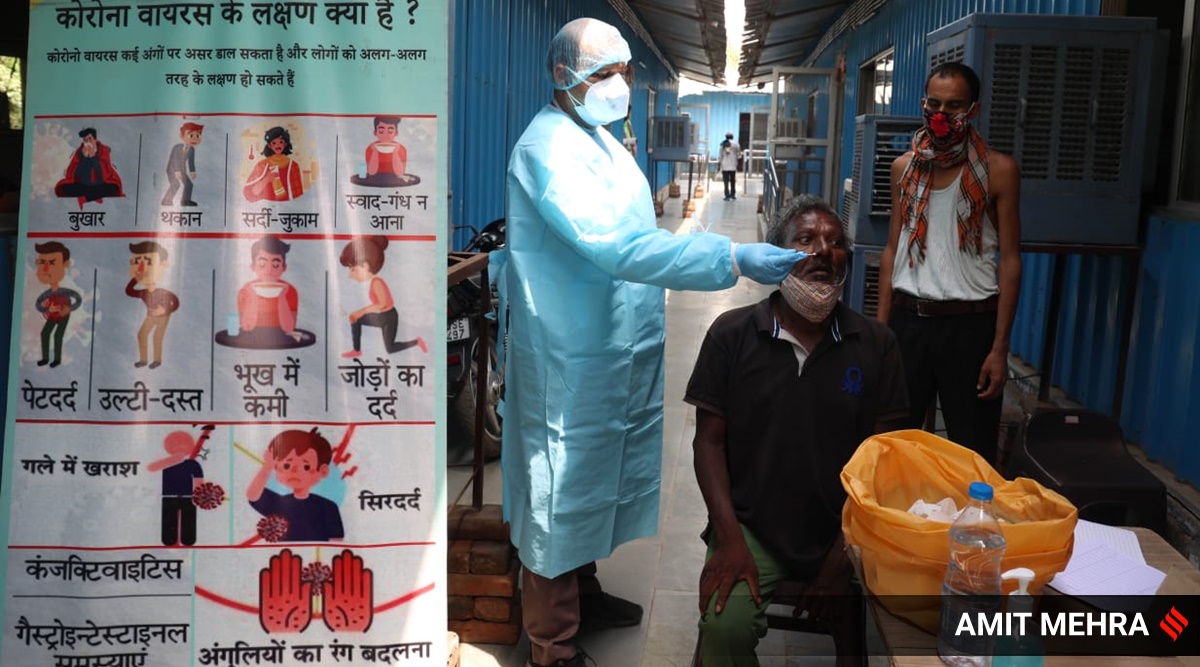 A healthcare worker collects a swab sample, at a shelter for homeless people in New Delhi. (Express Photo: Amit Mehra)
A healthcare worker collects a swab sample, at a shelter for homeless people in New Delhi. (Express Photo: Amit Mehra) Delhi recorded a slight increase in Covid-19 cases on Friday with 1,656 new infections being reported. This is the third time in the April-May period that the number has gone beyond the 1,500-mark.
Delhi started seeing a surge in daily cases during the second week of April, soon after all Covid-related mandates were done away with.
However, the increase in cases or positivity rate — proportion of samples tested found to be positive for the infection, indicative of the spread of the infection — hasn’t been sharp like the two previous surges. The number of cases increased from just over 100 to 500 in 13 days during the current surge and to 1,000 in another four days. It remained close to 1,000 for a period of six days before increasing slightly to between 1,200 and 1,600 for the next eleven days.
The last increase also corresponded to a rise in the number of tests. The weekly average positivity rate stood at 5.97 per cent during the last seven days, a rise from 4.96 per cent a week before, and 5.25 per cent two weeks before. The weekly positivity rate stood at 2.30 per cent during the second week of April and 1.17 per cent during the first week.
Best of Express Premium
When compared to the previous waves, the number of cases increased from just over 100 to around 500 in just eight days during the omicron variant surge in December and January-end. It shot past the 1,000-mark in another two days and the 2,000-mark in another two days after that. The number of cases crossed 28,867 during the previous surge. However, hospitalisation remained low.
Even during the current surge, hospitalisation has remained below 200 across the city.
Experts believe that the current increase is driven by people not adhering to Covid-appropriate behaviour, rather than any new variant. Two sub-types of the BA.2 sub-variant of omicron – BA.2.10 and BA.2.12 – have been detected in Delhi. An official from one of the genome sequencing labs in Delhi said: “These variants are very similar to the Omicron variant that drove the surge in January and is unlikely to cause large scale infections.”
- The Indian Express website has been rated GREEN for its credibility and trustworthiness by Newsguard, a global service that rates news sources for their journalistic standards.

